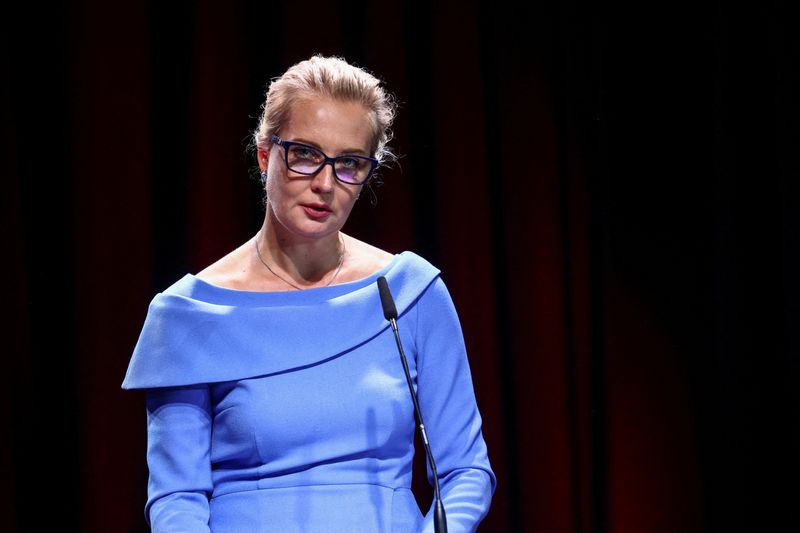Yulia Navalnaya’s Decolonization Critique Proves That Russia’s Liberal Opposition Hasn’t Been Listening to Indigenous Voices

At the Bled Strategic Forum in Slovenia, Yulia Navalnaya, widow of Russian opposition leader Alexei Navalny, delivered a speech emphasizing the need for a unified European strategy towards Russia. While much of her address echoed previous calls to support Russian civil society and democracy, one particular segment sparked controversy among Russian-speaking social media users.
Navalnaya remarked: “Some advocate for the immediate ‘decolonization’ of Russia, suggesting that breaking up our vast country into smaller, supposedly safer states is the solution. However, these ‘decolonizers’ fail to explain why people with shared cultural and historical roots should be separated, nor do they offer a clear path for how such a process would unfold.”
After her speech was translated into Russian and shared on social media by Team Navalny, it was met with criticism from ethnic and decolonial activists. Many were offended, pointing out that advocates for decolonization have long explained the concept, emphasizing self-determination and its relevance to Russia’s future.
The backlash highlights a persistent issue: Team Navalny, a major opposition group, appears reluctant to engage with the perspectives of Russia’s Indigenous populations, whose views on the country’s colonial past and present are often at odds with the mainstream opposition narrative.
Indigenous communities found Navalnaya’s comments particularly hurtful, viewing them as an echo of Kremlin propaganda that portrays decolonization efforts as dangerous separatism. They also criticized her failure to acknowledge the ongoing repression of ethnic and Indigenous activists by the Russian state. The tone of the Russian translation of her speech, whether intentional or not, was perceived by some as threatening.
Many on social media voiced disappointment and anger, with several Indigenous activists reaffirming their right to self-determination, independent of Moscow’s influence.
It’s important to recognize that Navalnaya’s speeches likely reflect the collective position of Team Navalny and the Anti-Corruption Foundation, rather than her personal opinions. The anti-decolonization rhetoric is aimed at courting certain Western liberal politicians and right-leaning audiences, who often harbor anti-Indigenous views.
This message also aligns with the Russian liberal opposition, largely made up of middle-class urbanites from Moscow and St. Petersburg, who tend to overlook the historical exploitation of Russia’s regions and ethnic republics, which have contributed to the prosperity of central Russia.
From the perspective of Indigenous activists, the push for Russia’s “Europeanization” seems misplaced, especially given that a significant portion of the country lies in the Caucasus and Asia, home to diverse peoples with unique cultures and histories of colonization.
This controversy underscores the deep divide between Moscow-based liberals and Russia’s Indigenous communities. As a result, many Indigenous groups are likely to continue charting their own course for the future, independent of the mainstream opposition movement.
The situation reveals the complex intersection of politics, ethnicity, and historical grievances within Russia’s opposition, and the challenges of crafting a unified vision for the country that addresses the concerns of all its diverse populations.